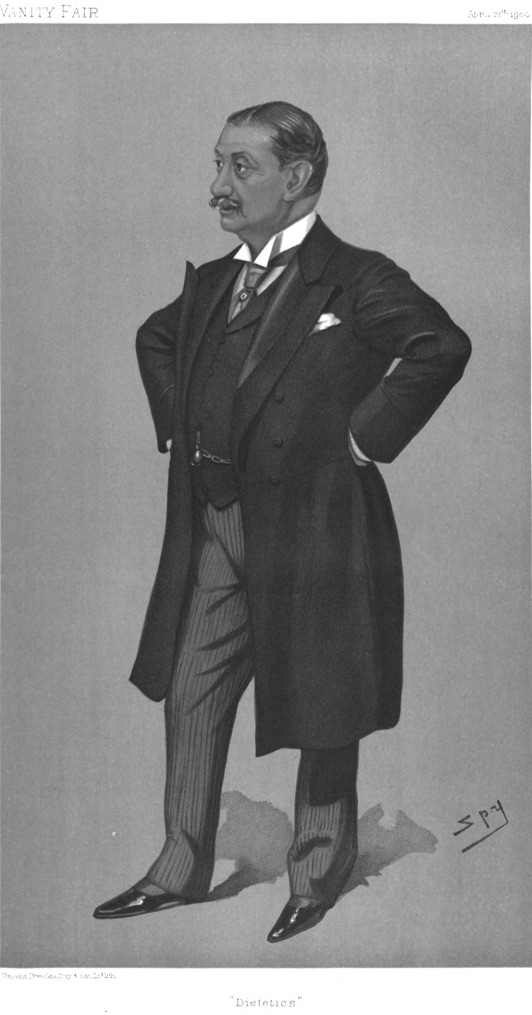THE STOUT BLUE LINE.
Vanity Fair (UK), June 23, 1904
(Dr. Yorke-Davies says that British sailors are much too fat. They are almost too fat, he says, to waddle across the deck.)
SINCE Britain, rising from the brine,
The waves began to sway,
Her vessels never were so fine
As at the present day.
Secure they sail from land to land—
No hurricane can wreck ’em;
But what of this when they are manned
By fat boys straight from Peckham?
When Nelson ’gainst the fleet of France
Sailed out to die or win,
He knew that he’d a splendid chance,
For all his men were thin.
Each man who fought in Rodney’s crew
Of slimness was a model;
And, when the bo’sun’s whistle blew,
They ran: they didn’t waddle.
How changed are things in modern days
On Britain’s men-of-war:
There’s not a man aboard but weighs
His twenty stone and more.
It’s true they’re brave: no British tar
In danger ever glum is;
But what of mighty souls, if far,
Far mightier their tummies?
Knock off the sailor’s tot of grog;
Reduce his bread and cheese:
Much fatted pork and spotted dog
Are bad for bold A.B’s.
Don’t give him supper from the grill,
With soups and rich brown gravies;
And there’s a chance for England still—
At least, so says Yorke-Davies.
P. G. Wodehouse.
Notes:
WATERLOO LOST IN THE KITCHEN. Dr. Yorke-Davies, a dietetic expert, considers that the average schoolboy is very improperly fed, having too much farinaceous food and not enough animal food. It will, he says, be found by studying history that very few really great and successful soldiers or thinkers have been fat. I think there is some truth in the assertion of a military friend of mine that if Napoleon had been thirty-five instead of forty-six and not so fat when he fought Waterloo, the result of the battle might have been different. As it was, over fatness had sapped his energy and crippled the ease of his movements. Wellington, on the other hand, had the advantage of being a comparatively thin man.” (Luton Times and Advertiser, June 10, 1904)
— John Dawson
 Dr. Yorke-Davies: Dr. Nathaniel Edward Yorke-Davies (1841–1914, caricature at right by “Spy” in Vanity Fair, UK, April 12, 1900) was a British consulting physician, one of the earliest specialists in dietetics. His book Foods for the Fat appeared in 1889 and sold widely, often reprinted. He would counsel William Howard Taft (later to be the 27th President of the United States) by mail on weight loss, circa 1906.
Dr. Yorke-Davies: Dr. Nathaniel Edward Yorke-Davies (1841–1914, caricature at right by “Spy” in Vanity Fair, UK, April 12, 1900) was a British consulting physician, one of the earliest specialists in dietetics. His book Foods for the Fat appeared in 1889 and sold widely, often reprinted. He would counsel William Howard Taft (later to be the 27th President of the United States) by mail on weight loss, circa 1906.
fat boys straight from Peckham: John Trunley (1898–1944) was known as “the fat boy of Peckham”; at the age of six he had a 44-inch chest and a 46-inch waist.
twenty stone: 280 pounds
A.B’s: able-bodied seamen
— Neil Midkiff
 Madame Eulalie’s Rare Plums
Madame Eulalie’s Rare Plums